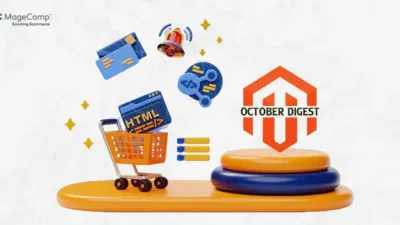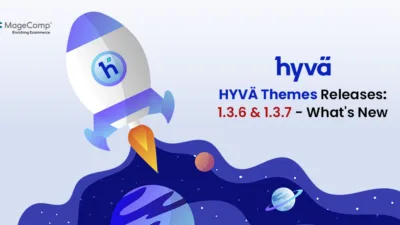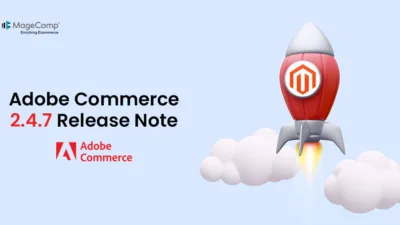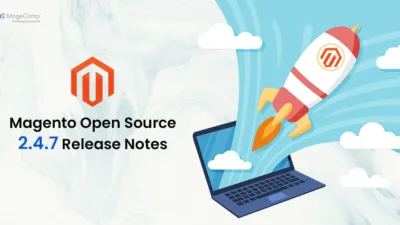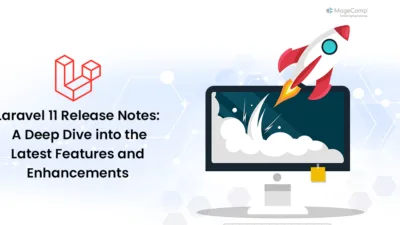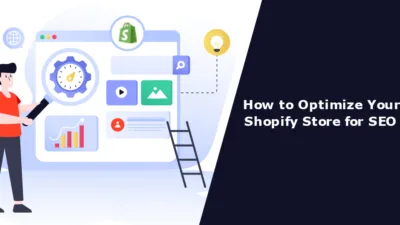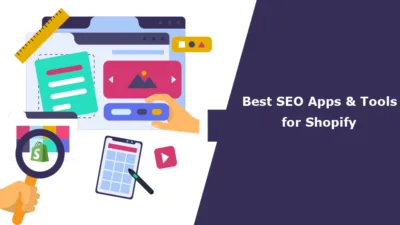Starting your business is no less than a dream come true. The excitement and pride one feels while starting their own business are unparalleled. But this excitement also has a second phase because a business startup is both exciting and challenging at the same.
When a business is launched, there are tons of factors that business startups must focus on. A lot of ingredients go into the recipe of a business startup, and search engine optimization (SEO) is one of the most important and frequently ignored factors.
The purpose of assembling this informative guide is to save business startups from ignoring the most important business factor – SEO and preventing future business losses.
Why Should Startups Optimize Their Website?
Reason #1: Boosting Website Ranking
SEO is time-consuming because many factors are considered while ranking the sight on search engine result pages.In the most well-known search engine, Google, its first result page where businesses want to rank and where the top 10 organic results (unpaid results) are listed. Because from the top 10 results, the top 5 are the only ones that matter the most to the users.
The search engine’s algorithm decides the website’s rank. Every search engine has a different algorithm method, and cracking this code is next to impossible.
Over 200 factors like page-loading speed, the website’s UI/UX, backlinking, on-page and off-page web spams (cheat code to top the SERPs), etc, are responsible for the website’s rank on SERPs.
Optimizing the website can help the startup deal with all these factors effortlessly and boost the website’s ranking.
Reason #2: Helps in Improving UI/UX
Loading the website with every possible relevant keyword is not enough to rank the website at the top of SERPs. The website must satisfy the customer with its user experience.While surfing through your website, if it fails to satisfy your customers with its features, the customer will immediately abandon your website.
If you want to rank your website at the top and reduce the cart abandonment ratio, it is very important to build a user-friendly website.
SEO helps in concluding the factors that might be responsible for delivering low user experience and encourage the admin to find a way out of it which, at last, will help the website improve its user experience.
Reason #3: Reach Your Target Audience Easily
As discussed earlier, customers always search for your business. It is your website that needs to have keywords relevant to your customer’s search queries.Search Engine Optimization helps the website create SEO-rich content loaded with relevant keywords.
Startup owners must not overlook the importance and benefits keywords offer to the business website because relevant keywords help the business gain a huge crowd of organic traffic.
An example of relevant keywords is as follows.
In this example, you can see that a user entered a search query and results with relevant keywords appear on the search bar. If any jewelry business has Mangalsutra products on their website and has included all these keywords in the website, the chances of ranking their website at the top are high.
Reason #4: Maintains Your Budget
Startup businesses are already on a tight budget during their initial period. Hiring an SEO expert during that initial time might affect their budget.SEO is no rocket science. Implementing basic DIY SEO strategies like appropriately using relevant keywords in your website content can benefit your website with more organic traffic than paid traffic.
Once your basic SEO strategies have started to pay you back with positive results, you can choose to advance your SEO strategy and hire an SEO expert.
Tips For Startups To Optimize Its Website
Tip #1: On-Page SEO
On-page SEO is self-explanatory. Every on-page content that can be optimized and rank the website at the top of the SERP is known as on-page SEO.On-page SEO considers all front-end aspects, which are the technical and content factors that help improve a website’s user experience.
Regular on-page SEO optimization = increase in organic and prominent store traffic.
Various web page technical factors that search engines can optimize during on-page SEO optimization are
- Title Tags
Title tags are HTML components used in naming the webpage and are shown in a clickable format on the SERPs.
Each Title tag must contain a maximum of 60 characters and should be unique and keyword optimized.
- Headings
If a website wants to experience the best results, it must have an H1 heading format for the headings on the website content.
The heading should also be keyword optimized and focus on the appropriate and detailed words.
If the website is loaded with long content, breaking up the content into different subheadings, ranging from H2 to H6 heading format, is the best practice website can follow.
- Structure of URL
As long as the URL includes relevant keywords, a long URL structure can be fine, but shortening it up might be the best choice if the URL structure is long and includes only a few keywords.
- Image Alt Text
We, humans, have the ability to identify any particular image in many different ways, but the search engine, which is a robot, does not have this ability. The image Alt text assists the search engine’s algorithm to identify the image.
- Page-loading Speed
According to Google, if page loading times change from 1 second to 3 seconds, bounce rates on mobile sites increase by 32%.
The above statistic is enough to conclude the importance of high page-loading speed. Besides that, even search engines fine(penalty) slow-page loading sites with poor user experiences.
- Internal links
Internal links play a vital role in delivering easy navigation features to your customers. Optimizing the internal links can help your website increase its user interface.
- Meta Description
Just like the image Alt text, the meta description is a collection of relevant keywords that describes the business in a few words. The word limit of the meta description must not exceed 160 characters.
- Website responsiveness
It is not compulsory that your users might surf your website from a computer device only. They can surf your website from any electronic device available, whether a computer, mobile device or laptop. On-page SEO optimization helps in knowing the website’s responsiveness on various devices.
Ensure your website is fully optimized for search engines, with Professional Web Development Services.
Tip #2: Off-Page SEO
Stuffing the website content with lots of keywords has become an old-school technique for ranking the website on the SERP top. Nowadays, buying paid backlinks for increased page ranking is high in practice.In simple words, we can say that off-page SEO optimization is an activity that focuses on discussing your website on other websites.
Factors that affect off-page SEO optimization are as follows:
- Backlinks
The quality and quantity of the backlinks have become an essential element in off-page SEO optimization. Backlinks are so important that even the well-known search engine Google has specific algorithm guidelines regarding these backlinks.
- Mentions without any backlinks
This is a very rare and suspicious scenario. Your website or brand name being mentioned on other websites without any backlinks is next to impossible. This case is so suspicious that even Google might charge a fine against your website for this.
Despite this, unlinked mentions do offer benefits during off-page SEO optimization.
- Google My Business
Businesses are allowed to share their business details directly with Google My Business. Business details like location/area, contact info, types of business, and business working hours can be shared directly.
Google My Business is an essential tool for local businesses to optimize their traffic according to geographical location. In addition to that, you can increase your brand awareness with Google My Business.
Tip #3: Voice Search
Whenever we come across the term Voice Search, Apple’s Siri, Amazon’s Alexa, and Google’s Ok Google are the names of voice assistants that pop into our minds instantly.The reason for the popularity of these voice searches is that they provide a typeless searching option to the customers, i.e., customers are no longer needed to type their desired product name or brand name, they are just needed to say the product or brand name to the voice assistant, and the list of search results will appear easily.
A product name takes time to be written, whereas a fraction of a second is needed to say the product name, which results in the voice search being 3 times faster than text searches.
In this growing mCommerce age, the fan following and effectiveness of voice searches have increased tremendously.
Optimizing your website with voice searches will never be a loss-making decision for your website. In fact, it will help businesses gain more popularity.
Tip #4: Visual Search
Google Lens is the best example of a visual search. It is not necessary that users might know the name of the product they come across. For the cases where users find it hard to describe the product, visual searches make the user’s search easier.
The user needs to take a picture of the product they are willing to search for, and the results related to the image will be displayed on the search page.
Grocery stores and clothing or fashion retail websites are the ones that must have the feature or visual search on their website.
Some of the top Visual Search platforms are as under
- Google Lens
- Pinterest Lens
- Instagram Shopping
- Amazon Rekognition
- Snapchat
- eBay
- Bing Visual Search
- QR Codes
Tip #5: Startup SEO Toolbox
The importance of SEO has increased so much that the market is flooded with so many SEO tools. The higher the number of SEO tools, the more difficult it is to pick out the right and most effective one.
- SEO Audit Toolbox
SEO audit tools are both paid and free. From keywords to page-loading speed, on-page factors to backlinks, these Audit tools optimize every minute of website detail.
Here is a list of some best SEO audit tools
- Google Search Console (Free SEO tool)
- Screaming Frog (both Free and Paid)
- SEMRush (both Free and Paid)
- Backlink Audit Tools
If you want to evaluate the number of backlinks that redirect to your website, then backlink audit tools are the tools you need.
Backlink audit tools help a lot in boosting the site rankings as the backlinks are like votes for your website from other websites.
- Keyword Research Tool
Website SEO is impossible without keywords. You will not get targeted business if your website does not contain any relevant keywords.
Finding every relevant keyword is a difficult task, so taking the help of keyword research tools, you can easily pick the most relevant keywords related to your business.
Tools like Google Adwords Keyword tool, KWFinder, Ahrefs Keyword Finder, etc., are the most popular keyword research tools.
- Competition Analysis Tools
Monitoring your competitors’ activity is very important to stay one step ahead of them. Competition Analysis Tools help you analyze your competitors’ SEO strategies to rank higher on Search Engine Result Pages.
For startups, SEO competition analysis tools are the best to rely on for staying updated about current market trends.
Should a Startup Hire an SEO Consultant?
Unless and until your budget is not disturbed, as a startup business, you should hire an SEO expert.
The concept of SEO is too deep to expect, and for a non-SEO person, it is impossible to reach those depths. An SEO expert can help you, and your business gets through all the SEO aspects.
If you are a startup or an established firm searching for an SEO expert, start your SEO journey with us.
Conclusion
SEO is the most affordable and worthy investment for your business. It is a very time-consuming process, and sometimes it becomes hard to wait for fruitful results, and this affordable investment might seem unworthy, but as a startup or a well-established business, you must remember that sooner or later, your business will be benefited from the most favorable returns that will always be worth the wait.


